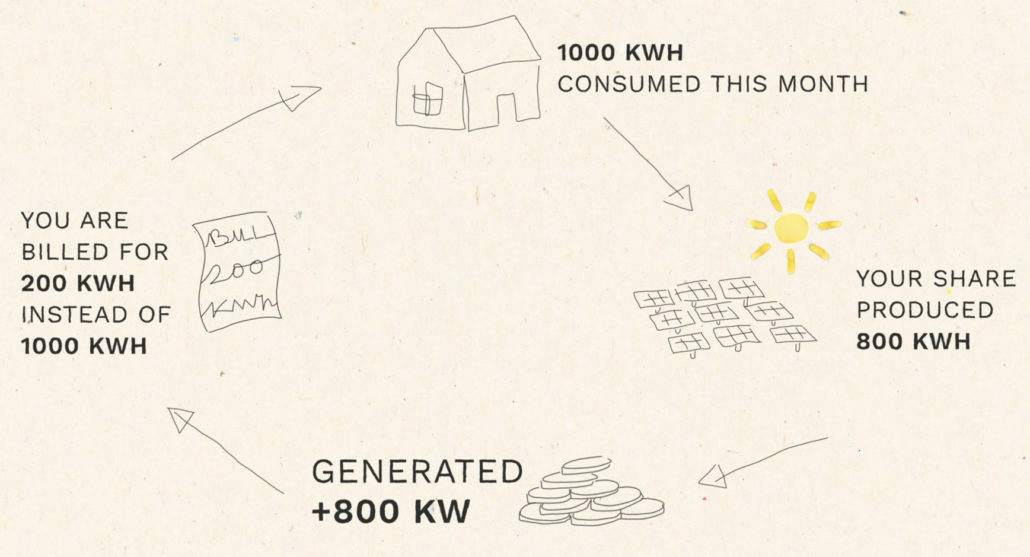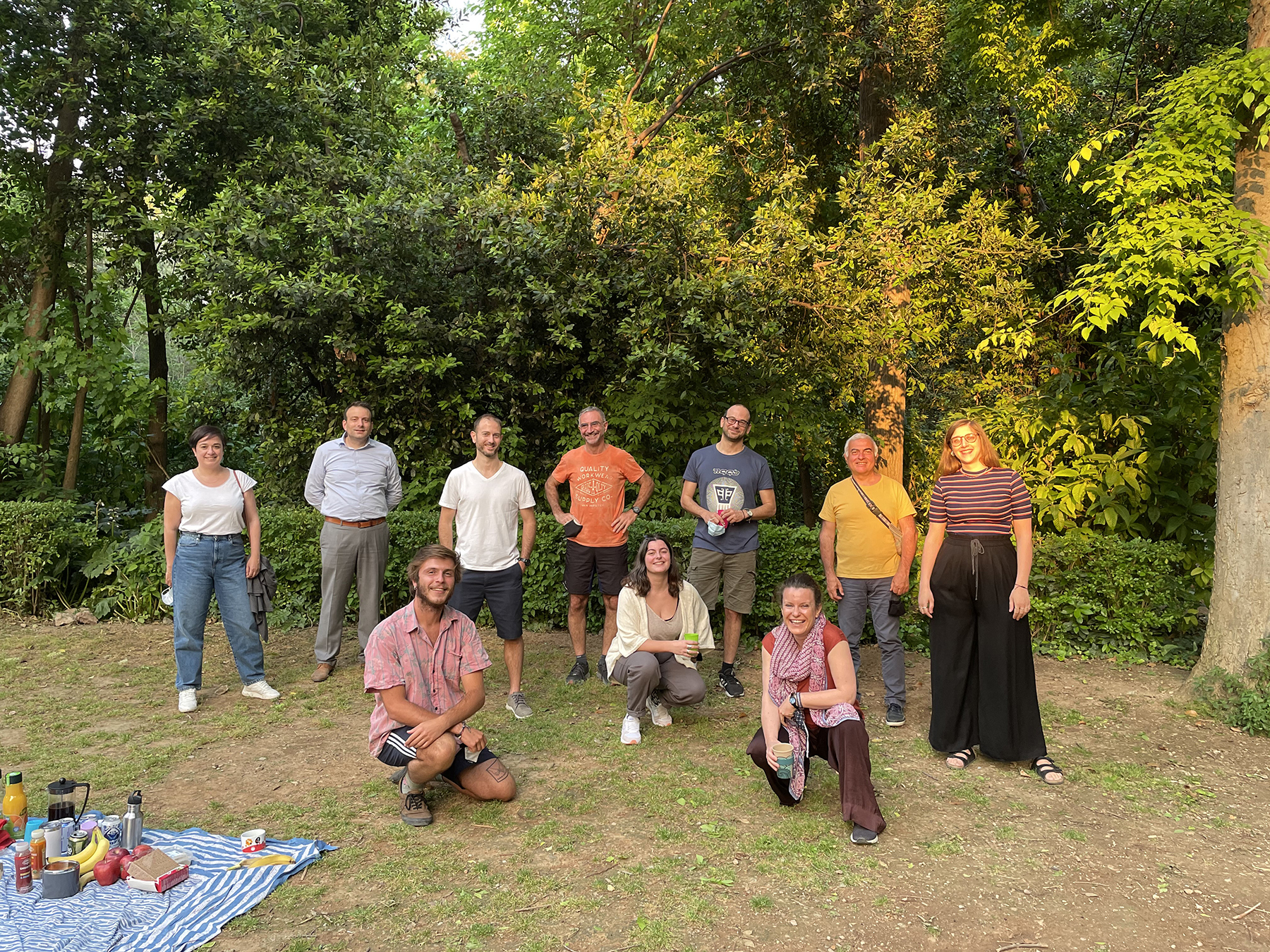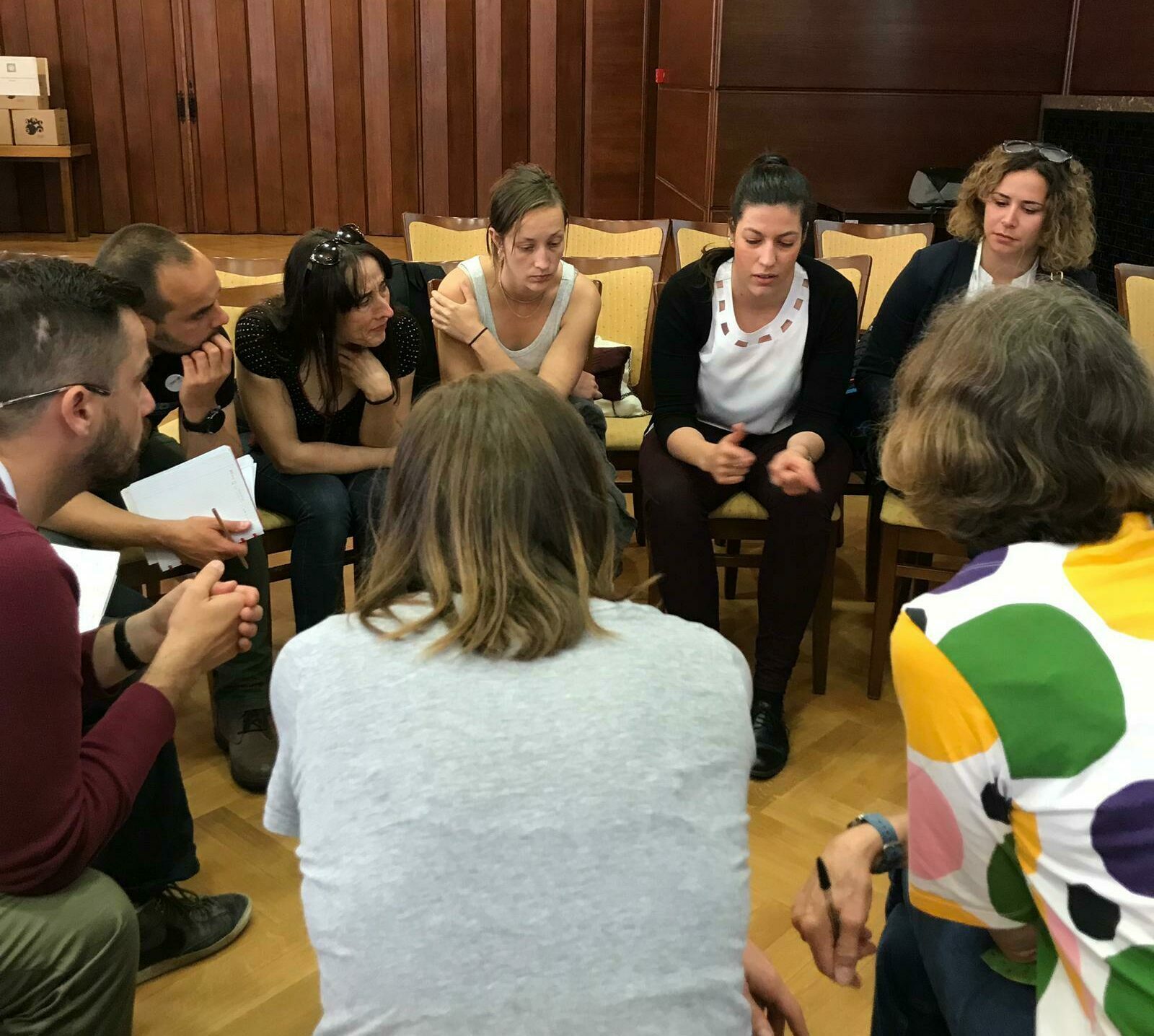Stories
September success story: a cooperative helping hand to launch Hyperion
Community energy is key to action on the climate crisis. It can empower people, boost local economies, and reinvigorate communities. Community-led initiatives play an important part in the transition towards a 100% renewable and just energy future. Success stories of community energy projects can be found all over Europe. At REScoop.eu we want to highlight these stories in order to further accelerate the movement towards a cleaner and democratic system.
In July we talked about the first energy cooperative in Romania and how the support of the Spanish cooperative Som Energia helped them start their activities. This month we deepen into the topic of cooperation among cooperatives through the story of Hyperion.
Cooperation among cooperatives
The sixth cooperative principle outlined by the International Cooperative Alliance refers to the cooperation among cooperatives and it reads as it follows: “Cooperatives serve their members most effectively and strengthen the cooperative movement by working together through local, national, regional and international structures.”
With traditional banks turning their backs on community energy projects, the cooperation among cooperatives is proving to be a lifeline for many initiatives. The last example of this cooperation is the support that the Portuguese cooperative Coopérnico provided to the new Greek community Hyperion.
The Hyperion project
Hyperion is the first energy community in Athens that will produce its own solar energy for self-consumption. It was created earlier this year by a small group of people who, sparked by the health, climate and economy crises that we are living in, felt the need to challenge the centralized, fossil-based energy system, whilst trying to deliver socio-ecological goals beyond simple profit-making.
The first project of the community is the construction of a 80 KW solar park in Central Greece, which will cover the electricity needs of about 30 households in Athens. People joining the cooperative become self-producers (prosumers) and co-owners of the solar farm too. Through their cooperative shares, they own part of the annual electricity production of the plant, which is then deducted from their energy bill.

The aim of Hyperion is to use this first installation as a guiding project to develop skills and capacity to replicate it in other areas of Greece and potentially internationally.
Raising the funds for the project
Hyperion raised the 40,000€ they needed for this first project through Greenpeace’s peer-to-peer investment platform Genervest. Chris Vrettos, founding member of Hyperion, explains why they decided to choose this option.
“Not for profit energy communities in Greece face an important obstacle: the lack of institutional funding mechanisms. They’re not considered ‘bankable’ investments by systemic banks, which is why they’re sidelined. Genervest allowed us to seek funding directly from citizens or other cooperatives, without having to rely on systemic institutions.”
The project raised the money through micro-credits with a 6% interest rate from all kind of people and organisations in less than three months. Chris summarises the process as it follows:
“In the absence of institutional financial tools, civil society is organized bottom up and provides alternatives. Of course, there were moments of intense concern during which we doubted whether we would be able to raise the necessary funds and therefore succeed in the project. Our experience shows that various citizens, from different backgrounds, supported us with small, medium and large amounts, highlighting in practice an alternative solidarity financing model.”

Cooperative support from Coopérnico
A key contribution for the success of the funding came from Coopérnico, Portugal’s largest energy cooperative, which covered one eight of the total amount.
Electra Energy, the Greek energy cooperative behind the creation of Hyperion, and Coopérnico are both members of REScoop.eu, so there have been in touch with one another for some time. Following a presentation by Hyperion at REScoop.eu's Annual General Meeting 2021, Coopérnico reached out to Hyperion and offered to contribute to their crowdfunding effort.
Interestingly, Coopérnico faced similar funding barriers back in 2013 when it was created and its first project was possible thanks to the support of three cooperatives: Beauvent from Belgium, Som Energia from Spain, and Waterland from the Netherlands. Together they created a European consortium in which Coopérnico had a 17.5% stake.
Working towards a new paradigm of socio-economic organisation
Hyperion has now 32 members and they hope to have their first project fully operational and grid-connected by mid-Autumn this year. Chris Vrettos announces that they will celebrate the launch with a visit to the park site, a picnic, and a photoshoot with all members. He also outlines Hyperion’s plans for the future.
“As for the next steps, we’re already eyeing the expansion of Hyperion into its second phase; a park of 500 kwp involving more than 160 members, a significant portion of which should be energy poor households. We’re not going to be limited to electricity production: we’re also looking for ways to get involved in e-car sharing schemes, or to collectively purchase heat pumps to replace oil and gas heating systems. Most importantly, our aim is to prefigure a new paradigm of socio-economic organization that prioritizes social and ecological goals over profit. A key step towards achieving this is strategic networking with other like-minded initiatives, which is why we think our participation in REScoop.eu and our collaboration with Coopérnico are both so pertinent.”
REScoop.eu as driving force behind the cooperation between cooperatives
One of REScoop.eu roles as the European federation of citizen energy cooperatives is to facilitate the cooperation between REScoops around Europe. We enable spaces of exchange, such as our Annual General Meeting or our working groups, and get involved in European projects where we find solutions for the energy transition to energy democracy together with some of our members.
REScoop.eu is also part of the founding team of The Mobility Factory, a European cooperative society that facilitates contact between cooperatives that provide e-car sharing services, and REScoop MECISE, a financial facilitation service to finance community energy projects and develop shared projects with other cooperatives.
Chris highlights the importance of this international cooperation among cooperatives to ensure a just and democratic energy transition:
“As the renewable energy transition accelerates, energy cooperatives must seize this unique window of opportunity and keep organizing themselves in these networks of mutual solidarity. This does not just mean financial support, but also capacity building, collective visioning, advocacy and conflict-resolution. We must present an alternative to the aggressive commodification of renewable energy; this is the only way to ensure that the clean energy transition will be truly just.”
